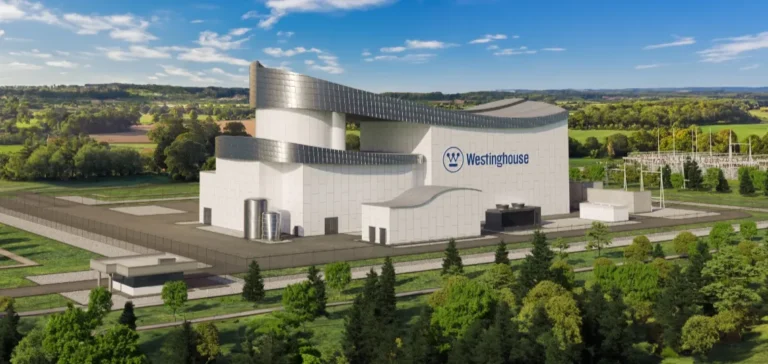The United Kingdom and the United States are set to formalise a landmark partnership to accelerate the development of civilian nuclear energy. The British government confirmed that the agreement will be signed this week in London during the official visit of U.S. President Donald Trump. The agreement is expected to significantly reduce the licensing period for nuclear plants, from three or four years to approximately two.
A structuring partnership for the nuclear industry
Named the “Atlantic Partnership for Advanced Nuclear Energy”, the agreement will enable enhanced coordination between the regulatory agencies of both countries and improved industrial integration. London stated that the deal will facilitate the construction of new nuclear facilities in both the UK and the U.S., while securing investment across the sector.
The partnership also includes joint development of pilot projects in nuclear fusion, an experimental technology considered by engineers as a potential long-term energy source. The cooperation aims to consolidate research efforts, particularly in testing infrastructure and advanced materials.
American modular reactors in the United Kingdom
In this context, the British government announced plans to construct up to 12 advanced modular reactors at the Hartlepool site in eastern England. The project will be led by American firms X-Energy and Centrica. In parallel, a consortium consisting of Holtec, EDF and Tritax plans to deploy a network of data centres powered by modular reactors in Nottinghamshire.
Support for nuclear technology also includes a public investment plan announced by the British government in June, amounting to over £30bn ( $35bn), dedicated to the development of the Sizewell C plant and the modular reactor sector.
2028 target for independence from Russian fuel
One of the stated objectives of this bilateral initiative is to end reliance on Russian-origin nuclear fuel by the end of 2028. This move comes amid a broader strategic shift in energy sourcing since the start of the conflict in Ukraine.
British Prime Minister Keir Starmer declared his intention to build “a golden age of nuclear” with the United States, confirming the central role that London envisions for this sector within its energy mix.






















